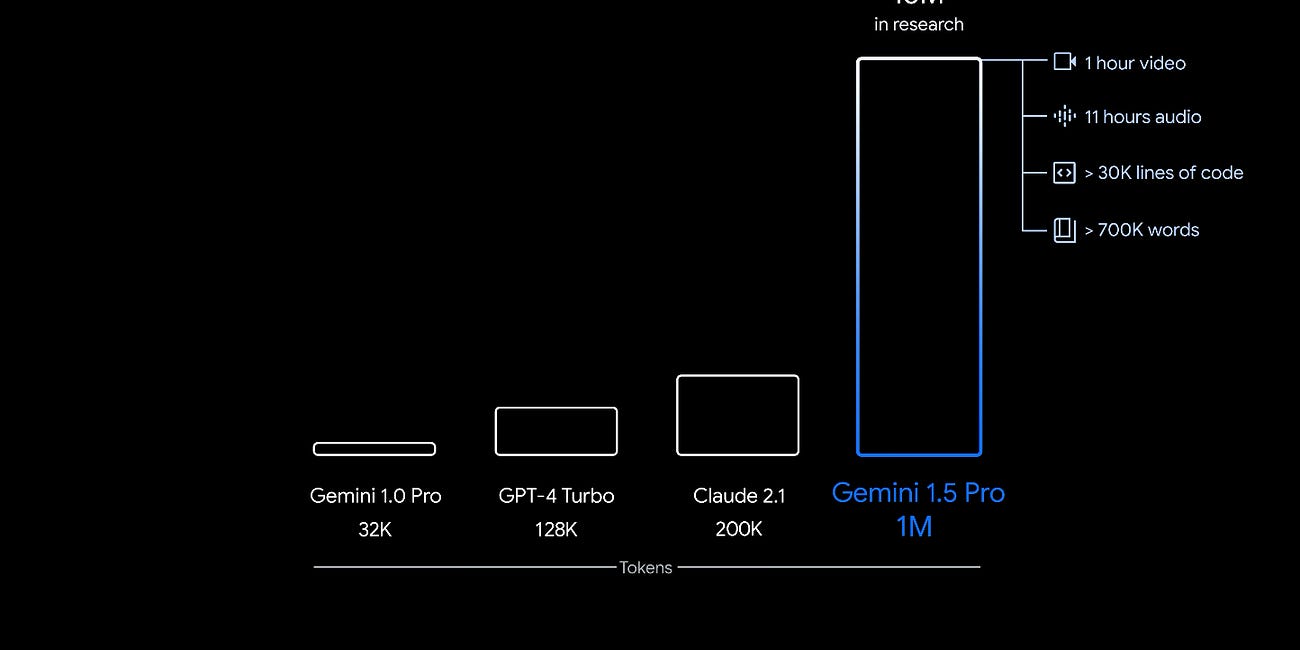How Apple's Discussions with Google and OpenAI Could Impact Generative AI
It will be looking to get paid and not buy access to a service
Bloomberg reported that Apple is in advanced talks with Google about using the Gemini large language model (LLM) for iPhone user features. This follows earlier discussions with OpenAI about employing its models. According to The Verge, Tim Cook revealed in the company's most recent earnings call that generative AI would arrive in iPhones “later this year.”
Apple’s focus on augmented reality and the Vision Pro led it to dismiss generative AI in 2023. The company’s lackluster generative AI development called into question Cook’s confidence. That is, of course, if Apple planned to rely on its own internal development, such as Apple GPT. However, there is another way.
Cook would surely like to announce a solution at WWDC in June. At that event, the company debuts new features to developers, which they then incorporate into products for release in the fall. The fastest route to a generative AI solution is partnering with a leading foundation model developer. It is not surprising that Apple spent time with OpenAI as it is the market leader. Google is an obvious partner candidate as well, given the longstanding arrangement around search.
Ringing the Register
Unlike other organizations, Apple probably isn’t looking to pay for access to an LLM. It is more likely that they are looking for payment to adopt a solution. The New York Times reported that Google paid Apple $18 billion to be the default search engine in the Safar browser in 2021. The payments go back to at least 2017, when Google reportedly paid $3 billion. That figure rose quickly as Apple realized how valuable iPhone users were to Google while it was entertaining a competing offer from Microsoft’s Bing.
Generative AI may one day displace traditional search, but that is not imminent. Consumer habits will take far longer to change. However, Google can’t afford to be in a weak position when the adoption tipping point is reached. And Google is in a weak position when it comes to generative AI.
The new Gemini Pro and Ultra 1.0 models look promising, and the Gemini 1.5 models offer the shock value of a 1 million data token context window. Users have not been lining up waiting for any of these models, as high-quality foundation models already exist from respected vendors such as OpenAI, Anthropic, and others.
Then there is Google’s ChatGPT competitor, Gemini Advanced, which launched nearly a year after OpenAI’s personal assistant/chatbot. Any inroads the company can make to proliferate the use of Gemini models as the assistant will go a long way towards establishing Google as a leading generative AI product company.
Google provides another attractive angle that OpenAI is unlikely to match. The Gemma open-source small language models (SLM) carry no licensing costs and could be modified by Apple to provide a more enriching on-device user experience.
The Risk of Losing Apple
A deal with Apple will cement Google’s prominence in the industry. It will also give Google access to two billion iPhone users who might not otherwise think to consider the company’s generative AI solutions. Conversely, an Apple deal with OpenAI would be devastating. It would help OpenAI solidify its market leadership and potentially serve as a springboard to compete with Google for next-generation consumer search market share truly.
This presents Apple with the opportunity to negotiate from a position of strength. That will most likely lead to another check passing between Google and Apple. Generative AI is far more costly to run than traditional search on a per-query basis, so it is almost certainly a deal that will come with some usage cap, which could lead to incremental revenue for Google.
The deal may not be a lock. Now that people know about the negotiations, Apple will surely be contacted to entertain additional conversations. It would also be unsurprising if the company had already had discussions with Microsoft. Satya Nadella is unlikely to offer as much as Google, but you should expect them to consider making an offer. Other companies, with the possible exceptions of Meta and NVIDIA, also are unlikely to bid against Google. They don’t have the cash.
X.ai's Grok-1 Model is Officially Open-Source and Larger Than Expected
X.ai announced today that the Grok 1 large language model (LLM) is officially available under the open-source Apache 2.0 license. This permissive license allows users royalty-free access to the source code for commercial and private uses. According to
Google Goes Big on Context with Gemini 1.5 and Dips Into Open-Source with Gemma
Google has been busy well beyond fixing the system prompt issues for Gemini image generation. Gemini 1.5 is not just an upgrade of the Gemini model. It’s an entirely new model architecture. It arrives with a baseline 128k context window. However, Google is stressing that it has an eye-popping one million token context window currently being evaluated by…






